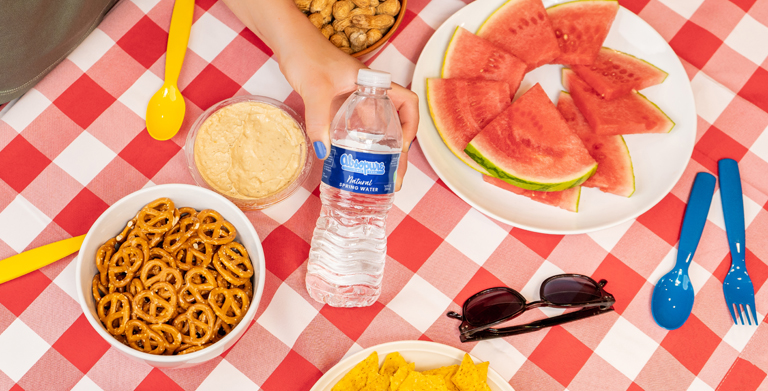Absopure
(un)Filtered

How to Hydrate for a Marathon: Training, Race Day, and Recovery Strategies
Marathon season has its own energy. The air is cool, streets are filled with spectators, and thousands of runners line up for races like the Detroit Free Press Marathon.
By the time you reach the start line, most of the work is behind you—but it’s hydration for a marathon that most often trips up runners. Without proper hydration, your legs feel heavier, your heart rate spikes, and your pace slips.
A few simple hydration habits during training, a clear plan on race day, and smart choices after the finish line are sure to give you an edge.
Hydration Tips for Marathon Training
Training for a marathon is where you figure out what hydration looks like for you. Everyone sweats differently, and your needs in July are different from October. As your weekly miles climb, you’ll be losing more fluid through sweat on those long runs. To stay on top of hydration during training:
Hydrate daily. Don’t just pound water the night before a big run. Make hydration part of your routine, so you start workouts topped off instead of playing catch-up.
Track your sweat rate. Step on the scale before and after a run. Any change reflects fluid loss. For every pound lost during a run, drink ~16-24 ounces of water to rehydrate.
Adjust for conditions. A long run in 75-degree humidity feels a lot different than a 45-degree run. Heat makes you lose more through sweat, but cold, dry air dehydrates you through faster breathing and quickly evaporating sweat. You may not feel as thirsty in the cold, so schedule sips if needed.
Add electrolytes early. On runs longer than an hour, water alone might not be enough. Sodium helps your body absorb and hold water. Potassium and magnesium keep muscles firing and relaxing properly. Water with added electrolytes and even a handful of pretzels can make a difference.
Practice your marathon plan. Carrying a handheld, wearing a hydration vest, or looping past hydration stations all work, but only if you’ve tested them. Training is the time to test hydration methods and find what feels most natural.
Your training runs should teach you as much about hydration as they do about pacing. That knowledge pays off when you’re deep into the race.
Race Day Hydration Strategies
On marathon morning, timing your fluid intake is important. Experts recommend about 16 ounces of water about 2-3 hours before the start of the race, and another 8 ounces about 10-20 minutes before the gun. This gives you a fluid reserve without overloading your stomach from the start.
During the marathon, maintaining consistent hydration is key. Take a few refreshing gulps at each hydration station, adjusting to the distance between stations.
Alternate water and sports drink. Alternating keeps electrolytes coming in, which helps with absorption and reduces the risk of hyponatremia. The Freep Marathon, for instance, has both Absopure water and sports drink options at every fluid station.
Stay even. Don’t skip every station because it’s cold. Don’t down two cups at once because you panic about dehydration. The rhythm you practiced in training is the rhythm you should trust now.
Hydration for Marathon Recovery and Muscle Repair
Crossing the finish line is an amazing feeling—but after hours of running, you’ll have a significant fluid deficit to make up, and your cells will be craving electrolytes.
Start rehydrating immediately after finishing your race. In the first 30 minutes, aim to drink about one bottle of your favorite Absopure water product to start replacing what you lost. In the first two hours post-race, your goal should be to fully replace the weight you lost during the marathon. Sip steadily rather than chugging all at once so your body absorbs and retains the fluids, rather than just flushing them out.
It’s also smart to replenish electrolytes and minerals to help your muscles recover and restore your body’s fluid balance. Have a salty snack or even a cup of broth within an hour after the race to get some sodium back in your system. Other good post-race choices include a banana (rich in potassium) or trail mix (rich in magnesium and sodium).
Remember, proper hydration delivers nutrients to your muscles and helps remove waste products from the breakdown of muscle during the race.
Hydration Will Make or Break Your Marathon
Staying hydrated is a marathoner’s secret weapon.
When you prioritize hydration during training, you’ll optimize your body for those long runs. By planning your race day hydration, you’ll set yourself up for success and avoid the pitfalls of dehydration. By focusing on recovery hydration in the hours after you finish, you’ll greatly assist your body’s healing process and be ready for whatever comes next.
Stay hydrated, run strong, and enjoy the marathon—you’ve earned it. Good luck and happy running!





